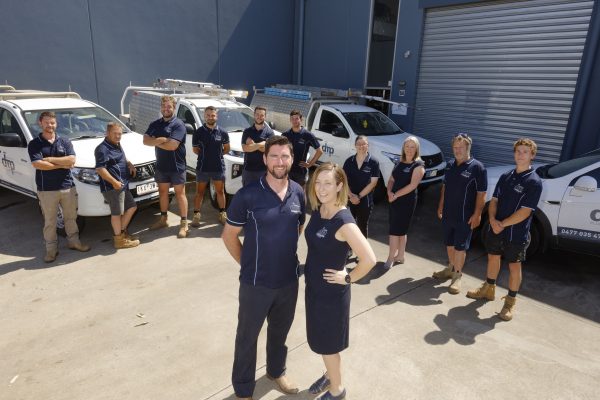Maintaining a good team culture during a crisis
Previously, I discussed the importance of creating, and maintaining, a good team culture and how critical it is for a business to not only attract but engage and retain employees.
Then comes old mate Covid-19 and tries to undo all that beautiful, positive team culture that has been established! But it should not prevail, because prioritising team culture is even more important during times of a crisis.
Most businesses that are still operating in Coronavirus lockdown stages will have some, if not all, team members working from home. Many of these team members are not only expected to continue working in their roles but also to parent at the same time, with most parents also becoming unqualified teachers with homeschooling now in place (help!).
In the trade and construction industry, admin teams are working from home whilst teams of tradies may have been cut down in numbers (to reduce the risk of transmission) or are isolated from all other technicians altogether. The usual camaraderie and jokes held at a morning toolbox talk has been replaced by another new SWMS and 5 kilos of PPE.
Maintaining a positive team culture in uncertain times is not only good for the business, its crucial for the wellbeing of every member of that team. Depression and anxiety aren’t symptoms of the Coronavirus, yet they’re taking a lot more casualties. In Australia, construction workers are almost twice as likely to commit suicide than non-construction workers. We need to continue to check on our team’s mental health during all stages of the lockdown, and well after its all over. Isolation can be lonely for many of your team members who may be living alone and now no longer get to have a laugh with their team mates on site every day. They could be separated from their ill mother, or from their child they aren’t currently able to see in a shared custody situation. Keep checking in, and make sure you offer mental health support or direct them to some free advice.
Communication is key, but make sure you don’t just do a daily call to discuss how frustrating isolation is. Ask how they are coping with family and work life being amalgamated, do they need to take some time off, more flexible hours? Are their kids and partners coping ok? Communication is two-way.
At David McCarthy Plumbing we’re a pretty transparent company, and when Covid-19 first hit we ensured the entire team was made well aware of our plan A, plan B and plan C so there weren’t going to be any shocks for our team members. We were open about our plans, our strategies (or current buzzword ‘pivot’) and how we were forecasting our business to look like in the next 24 hours, 7 days, month and quarter.
For our technicians, our main aim was to keep them safe from this virus we didn’t know much about. We invested in a mountain of personal protective equipment for our team; if they were going ‘into the trenches’ for us by conducting work in houses of isolating strangers, the least we could do is make it as safe as possible for them by dressing them like frontline health professionals.

Cat McCarthy is the people development manager for David McCarthy Plumbing & Gas in Point Cook Victoria.
We read article after article, made phone call after phone call, and updated our SWMS and OH&S policy an obscene amount of times, and whilst the team were probably growing tired of the next team safety sms, chat and email thread, they knew it was all so they could stay nice and healthy for their families (it helps to send each SWMS update with a decent meme to break the ice!).
Our team is normally used to seeing each other daily as they come and pick up tools, drop off client forms, sneak a few lollies or warm up a pie for lunch in between jobs. We also hold a monthly toolbox talk breakfast where we can update the team on our new projects, discuss any business, educate on new tools and materials, award our team member of the month and generally just use it as an excuse to catch up with each other. As social distancing rules (and a fear of transmission between technicians!) put the brakes on this, we held a virtual team meeting instead.
To make it a little more exciting for our team we mailed out a ‘toolbox talk care package’ the week prior (which arrived on time, thanks Australia Post!) including the usual treats the office is normally stocked up with plus some stationary, tea and coffee. Whilst not quite the same as a hot croissant and one too many pain au chocolat’s, just hearing the usual banter of taking the mickey out of the 4th year Apprentice’s hipster outfit and the Director’s grey hairs made it all worth it and is something we’re going to do more often than if we were meeting as a group face to face.
If you show your team continued trust in them, lower your expectations of their ability to complete a solid 8 hour day at home, thank them for ‘keeping on’ in an often discouraging period and genuinely care about them and their mental health during this time of uncertainty, you’ll not only maintain your team culture, you might even improve upon it.

